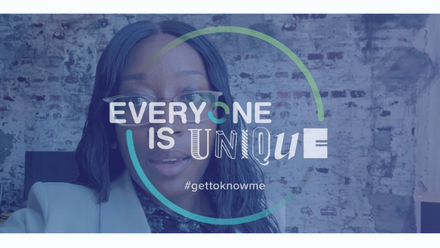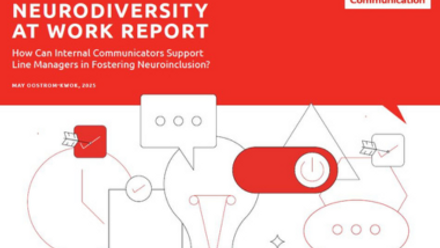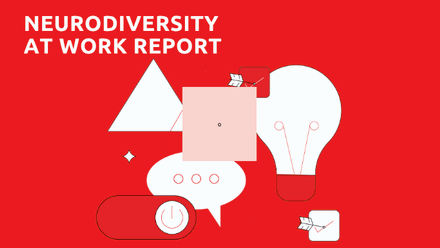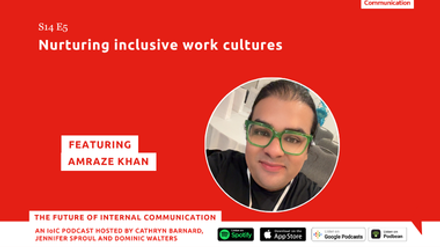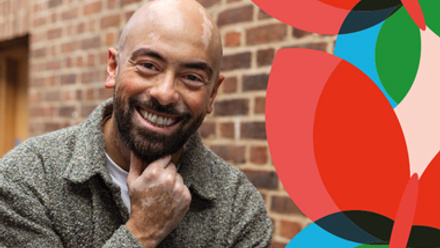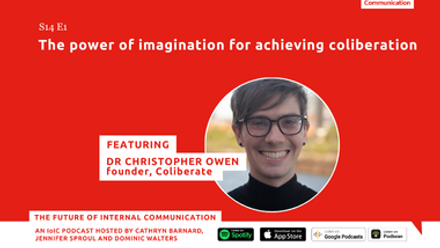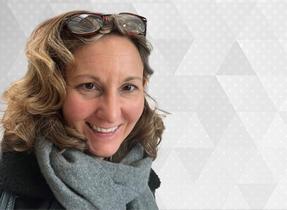
I’ve never liked talking about myself in terms of disability. My hearing and vision don’t work in the way most people’s do – but it’s not a big part of who I am.
I’ve been deaf since I was young. I wear a cochlear implant on one side and a hearing aid on the other. They don’t replicate sound, but they help me exist in a world that assumes everyone hears perfectly. My daughter is a singer. Without the implant, I wouldn’t hear her voice at all.
More recently, I lost part of my sight due to an autoimmune condition called birdshot chorioretinopathy. It’s a mouthful, but, essentially, my immune system is attacking part of my eye. The condition came on fast and hard, and I lost a significant amount of vision before it was diagnosed. I’m now on immunosuppressants to manage it, so although the condition is progressive and can’t be cured, my current vision should stay stable as long as the drugs keep working.
Losing my sight as an adult was a much bigger adjustment than my hearing loss. When the condition first hit and my sight declined fast, I lost the ability to do some basic things we take for granted, like reading and writing emails. I didn’t take time off. Not because I’m a hero but because I didn’t need to – and what made that possible was having incredible people around me.
My line manager said, “As long as you’ve got brain, and you can talk, then we can do the seeing and typing.” (And talking is my favourite thing, so it seemed like a pretty workable plan at the time!) I’ll never forget that. She carried me when I needed it.
Now that things have stabilised, it’s more mine to manage. But in the hardest moments, I was surrounded by colleagues who showed up for me. Not in big, performative ways, but with quiet kindness. I lost the ability to drive and suddenly felt like I was 15 again. But colleagues offered lifts like it was nothing. Just last week, someone messaged: “You're in the office tomorrow – want a lift from the station?” No fuss. Just support.
My cochlear implant is small. Most people don’t notice it when my hair is down. But when they do, there are usually two reactions: they avoid conversation altogether, or they speak very slowly, as if I’m going to struggle to understand them.
People make assumptions about those with hearing or sight loss – that we’re not able to work, that we’re not very bright. There’s still a stereotype that we can’t have a “normal” life.
And honestly, when I was younger, I believed that too. I didn’t think someone like me could lead a team or have a thriving career. But my experience has been the opposite. I’ve never felt that my hearing or sight has held me back professionally. The only thing that really limits people is the assumptions others make, and the ones we make about ourselves.
It frustrates me that when a disability is visible, such as with wheelchairs, people seem to pay better attention to that person’s needs. and can be more confident offering help. However, for something invisible, like hearing loss or sight issues that can’t be corrected with glasses, it’s easier for people to forget entirely and when they do remember they aren’t sure what to do. Often, they don’t even try.
During Covid, I needed people to lower their masks so I could read lips. Over half refused, even when I explained why.
As a comms professional, I’ve seen how small things make a big difference. Technology is a great example. Tools don’t need to be flashy or overcomplicated to work for as many people as possible. That’s real accessibility.
And don’t wait for someone to tell you what they need. Just ask. It’s okay not to have the perfect words – curiosity and humility go a long way.
If we want people to feel safe being open, we must be open too. Vulnerability breeds connection. When I’ve said, “I’m struggling with this” or “I’m scared”, I’ve found that others respond with their own openness. That’s how trust is built.
To me, disability is situational. At night, when I take out my cochlear implant, I’m not “disabled” – I sleep better than anyone. But at an airport, with background noise and shouting, I can’t follow, I feel completely out of my depth.
That’s why I struggle with labels. I’m not “a disabled person”. I’m a person. Sometimes I need support, sometimes I don’t. Most of us fall somewhere on that spectrum. So, rather than labelling people, let’s focus on kindness, curiosity and human connection. That’s what made all the difference for me, and I believe it can for others too.

